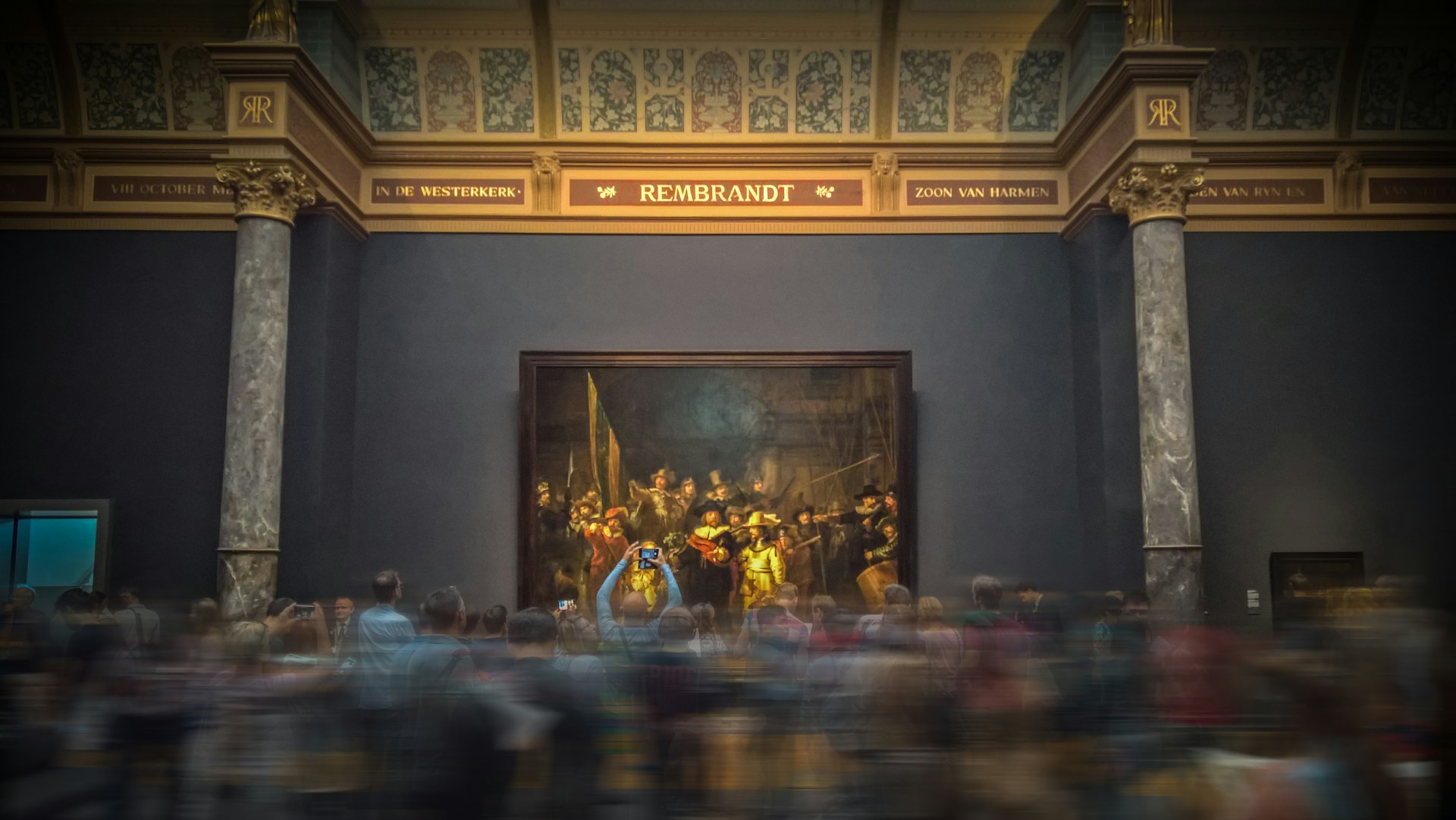When you think of millionaires, you probably imagine lavish spending—yachts, designer wardrobes, and over-the-top luxury. But here’s the thing: the wealthiest people don’t waste their money on ridiculous purchases. The ultra-rich didn’t get where they are by blowing their cash on useless, overpriced items that serve no real purpose. Some of the most successful millionaires and billionaires are surprisingly frugal, skipping out on trendy, overpriced nonsense that drains money fast. They know that some things just aren’t worth the price tag, no matter how much money they have in the bank. If even millionaires aren’t splurging on these things, maybe it’s time to rethink them.
1. Outrageously Expensive “Trendy” Clothes That Last One Season

Millionaires don’t waste their money on overpriced fashion trends that are here today and gone tomorrow. Sure, they invest in quality wardrobe staples, but they aren’t running out to buy whatever flashy, overhyped outfit is dominating social media this month. Trendy clothes lose value fast, and when you have money, you start thinking about purchases differently—like whether an item is actually worth the price tag. The rich understand that a $2,000 neon green feathered jacket might look cool for a week, but after that? It’s just another piece of clutter taking up space in their closet.
According to Vieux Riche, wealthy individuals tend to instead invest in timeless, well-made pieces that last. They know that fast fashion—whether luxury or low-end—is a financial black hole, and even designer brands release items that are purely for shock value. They’d rather have a few classic, high-quality pieces than waste thousands on something they’ll regret in a month. A well-tailored blazer or a quality leather bag? Sure. A bedazzled crop top that screams “limited edition”? Hard pass.
2. Bougie Disposable Shopping Bags

Some high-end brands sell “designer” paper shopping bags or reusable totes for jaw-dropping prices, and yet, even millionaires refuse to fall for it. The idea of paying $200 (or even up to $2700 according to TCD) for a glorified grocery bag with a logo on it is laughable to anyone who understands the value of money. No matter how wealthy you are, throwing cash at something you can get for free at most stores just doesn’t make sense. It’s not about being cheap—it’s about knowing when a product is a complete rip-off.
Wealthy people don’t get rich by spending mindlessly, and they certainly don’t fall for gimmicks designed to make them look more elite. If they need a reusable bag, they’ll buy a durable one for a reasonable price instead of a “luxury” version that does the exact same thing. The lesson here? If something is disposable, don’t pay premium prices for it. No one’s life is upgraded by a $300 shopping tote with a brand’s name on it.
3. Business Class Seats For Short Flights

Millionaires love their comfort, but even they know there’s no reason to splurge on a business class seat for a one-hour flight. Sure, upgrading for a long-haul trip makes sense, but for quick hops between cities, they’d rather save their money for something more worthwhile. Paying three to five times the price of an economy seat just to get a slightly wider chair and a free drink for 45 minutes? Not worth it.
Many wealthy travelers prioritize efficiency over luxury when it comes to short trips. They’d rather invest in private airport lounges, TSA pre-check, or direct flights that actually make their travel smoother. A first-class upgrade for an eight-hour journey? Maybe. But for a flight that’s barely longer than an episode of their favorite show? They’re not throwing money away on that.
4. Gold-Plated Stationery

Writing a grocery list on a gold-plated notepad is ridiculous, and even millionaires think so. Sure, they might have high-end office supplies, but they aren’t throwing thousands of dollars at solid gold paper clips and overpriced pens just to make a statement. A luxury Montblanc pen? Maybe, because it’s functional and lasts a lifetime. A diamond-encrusted stapler? That’s just laughable.
The ultra-rich value efficiency, and they know that spending on everyday office supplies should be practical, not excessive. If a $5 notebook works just as well as a $500 one, they’re going with the sensible choice. They put their money into high-quality investments, not on stationery that looks expensive but serves the same purpose as the $2 version from the office supply store.
5. Statement Pieces For The Home That Serve No Purpose

Millionaires love a well-designed home, but even they know the difference between luxury and stupidity. Buying an expensive chair that no one is allowed to sit in? A pointless sculpture that takes up half the living room? That’s not how smart money works. Even the wealthiest people prefer furniture and decor that’s functional, stylish, and adds real value to their living space.
Instead of wasting money on overpriced, impractical statement pieces, they invest in high-quality furniture that will stand the test of time. They’d rather have a gorgeous handcrafted dining table than a $30,000 abstract art piece that confuses guests. Home decor should enhance a space, not just exist to scream, “Look how much money I spent.”
6. Top-Of-The-Line Everyday Kitchen Staples

A millionaire might have a high-end kitchen, but that doesn’t mean they’re buying $100 jars of salt or designer dish soap. There’s a difference between investing in quality and throwing money at overpriced essentials that perform the same as regular versions. Spending $80 on a bottle of olive oil just because it’s in a fancy bottle isn’t good money management—it’s just falling for marketing.
Wealthy people understand that some everyday essentials are worth upgrading, but there’s a limit. They’ll buy a high-quality chef’s knife that lasts a lifetime, but they won’t waste $1,000 on a limited-edition pasta strainer. Just because they can afford to overspend doesn’t mean they do. Smart millionaires know that some things just don’t need to be luxury-branded.
7. Diamond-Encrusted Phone Cases

A phone case is supposed to protect your phone, not be a small fortune by itself. Yet, luxury brands have tried to sell diamond-encrusted phone cases for thousands of dollars. The wealthy know that spending more on a case than the phone is absurd. It’s not an investment—it’s just a flashy gimmick that doesn’t add any real value.
Instead, practical millionaires opt for sleek, durable cases that keep their phone safe without making them look ridiculous. They know that tech changes quickly, and spending a fortune on a phone case is pointless when they’ll upgrade to a new device in a couple of years. Luxury doesn’t always mean smart, and even millionaires know when to say no.
8. Luxury Clothes and Toys for Their Pets

Millionaires love their pets, but they aren’t throwing money at designer outfits and over-the-top accessories for them. While they might invest in high-quality food and medical care, they’re not wasting thousands on Gucci dog sweaters or Swarovski-studded collars. The reality is, their pets don’t care about labels, and neither do smart millionaires. Spending $500 on a luxury pet bed that looks fancy but is no more comfortable than a $50 one is a waste.
Instead, wealthy pet owners prioritize practical, comfortable items that actually benefit their furry friends. They’ll invest in a durable leash, a cozy bed, or quality pet food that keeps their animals healthy. They know their pets would rather have a fun toy from a regular pet store than a ridiculous $1,000 designer chew toy. When it comes to pet spending, millionaires focus on their animals’ well-being—not on flaunting wealth through them.
9. Crystal Wine Glasses That Always Break

Expensive crystal wine glasses look beautiful, but let’s be honest—one accidental bump, and they’re shattered. Even millionaires don’t see the point in spending hundreds on fragile glassware that won’t survive a single dinner party. They know that wine tastes just as good in a high-quality but practical glass as it does in a delicate crystal goblet. Spending a fortune on something that will inevitably break is just bad financial sense.
Many wealthy people opt for sturdy yet elegant glassware that doesn’t require constant replacements. A good set of well-made wine glasses that last years is a much better investment than an overpriced crystal collection that barely makes it through the holidays. They’re also not interested in showing off how “elite” their drinking glasses are—they just want to enjoy their wine without the stress of treating their glasses like museum pieces.
10. Customized License Plates

Personalized license plates can cost anywhere from a few hundred to thousands of dollars, and yet, even the ultra-rich aren’t wasting money on them. While they might drive expensive cars, they aren’t paying ridiculous amounts for a vanity plate that spells out “MONEY1” or “BOSS4LYF.” They know that no one really cares what their license plate says—it’s just another pointless way to burn cash.
Millionaires also know that the novelty of a customized plate wears off fast. Spending thousands just to have a clever phrase on the back of their car is a waste, especially when that money could go toward something far more valuable. If they want to make an impression, they’d rather do it with their actual success—not with a license plate that screams, “Look at me!” Smart spending means knowing when something is just an unnecessary ego boost.
11. Trendy Food Items with Overinflated Price Tags

We’ve all seen those ridiculously overpriced “trendy” foods—gold-flaked burgers, $50 smoothie bowls, and artisanal toast that costs more than a full meal. Even millionaires aren’t buying into the hype. They know that just because something is expensive doesn’t mean it’s actually better. Spending $100 on a milkshake because it’s Instagram-worthy? That’s not a power move—it’s just falling for marketing.
Wealthy people understand the difference between paying for quality and paying for a trend. They’ll happily spend money on a great meal at a Michelin-starred restaurant, but they won’t throw away cash on something that’s only expensive because it’s “exclusive.” At the end of the day, overpriced trendy food is just a fleeting gimmick, and millionaires don’t waste their money on things that don’t hold real value.
12. Ridiculously Expensive Gym Memberships with Unnecessary Perks

Millionaires care about their health, but they aren’t spending absurd amounts on gym memberships that come with over-the-top, unnecessary perks. Sure, they might pay for a high-end gym if they actually use it, but they’re not falling for fitness clubs that charge thousands just to have a luxury name attached. Paying an outrageous monthly fee just to have a sauna that never gets used or a juice bar that charges $20 for a smoothie? That’s a hard pass.
Instead, smart millionaires put their money into fitness that actually benefits them. Some build home gyms, others opt for a well-equipped yet reasonably priced fitness club, and many just stick to personal trainers or outdoor workouts. They know that real health comes from consistency—not from an overpriced gym that’s more about status than actual fitness. Flashy gym memberships don’t make you healthier—putting in the work does.
13. Ultra-Exclusive VIP Club Memberships That Offer Nothing Special

Some private clubs charge tens of thousands of dollars for membership, promising “exclusive access” to events and high-end networking opportunities. But here’s the thing—many millionaires realize these clubs are nothing more than overpriced social circles. Paying thousands just to say you’re a member of an elite club that doesn’t actually provide any meaningful benefits? That’s just bad money management.
The wealthiest people build real relationships through genuine connections, not by paying for access to a club where everyone is trying to one-up each other. If a club membership offers real value—like business opportunities or unique experiences—they might consider it. But dropping a ridiculous amount of money just to have bragging rights? That’s not how smart millionaires operate.
This article is for informational purposes only and should not be construed as financial advice. Consult a financial professional before making investment or other financial decisions. The author and publisher make no warranties of any kind.








